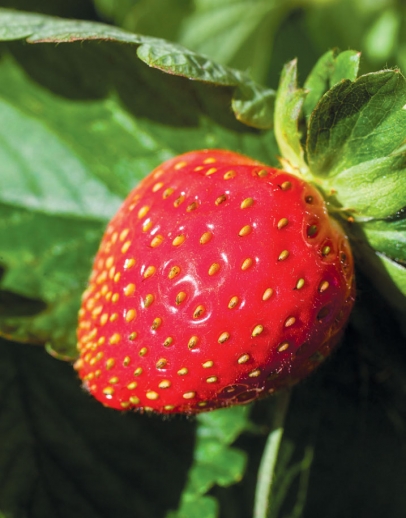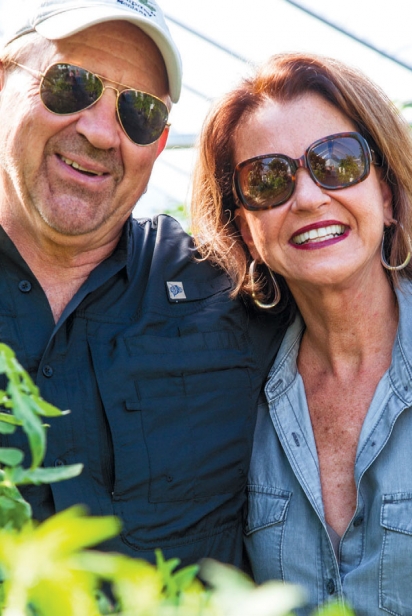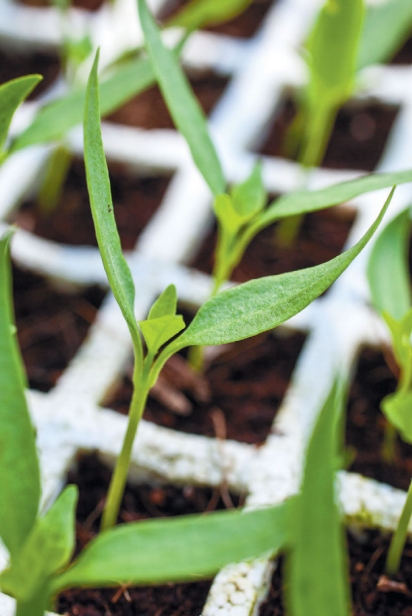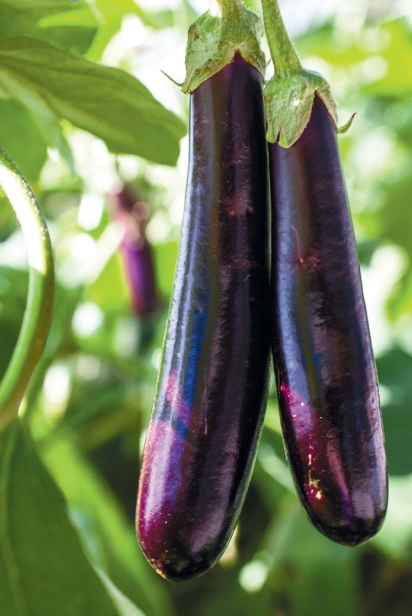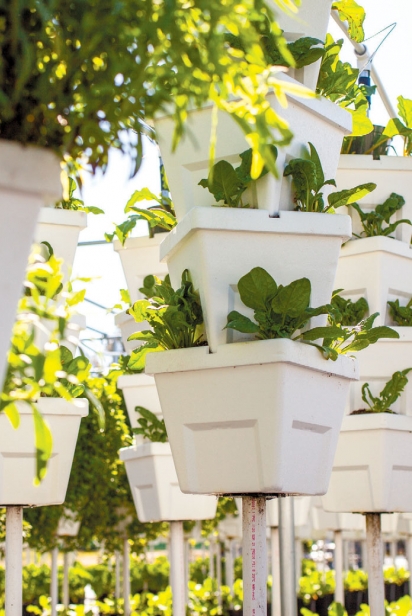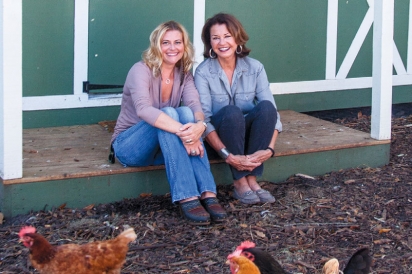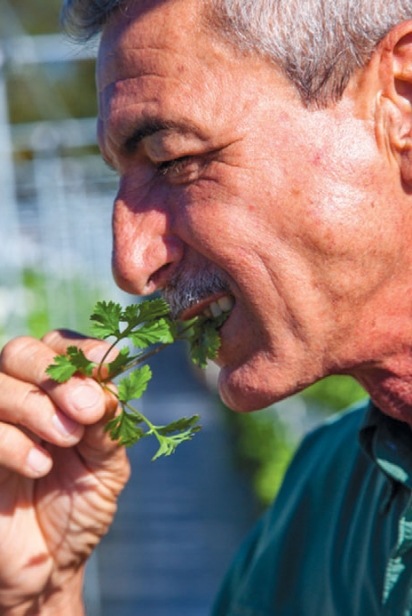Ditchin’ The Dirt: Hydroponic Oasis at Sweet Grass Farms
At the end of a dirt road, just north of University Parkway and east of Washington Boulevard, nestled between urban sprawl and dilapidated housing, lies an oasis where beautiful, vegetables, herbs, and seasonal fruits grow year-round.
Owners Jim and Kathy Demler call their hydroponic oasis “the farm of the future.” Sweetgrass Farms could be better described as a mouthwatering boutique.
Anyone stepping foot on the six-acre hydroponic farm has the opportunity to gain something from their experience, starting with the encouragement to customers to go beyond the farm stand.
“A customer can come in, look around and see what we have on display [at the stand], but we’ll also walk them around and educate them,” says Farm Manager Jose Torres.
Sweetgrass debunks common preconceived notions about hydroponic edibles. On the open-air farm, bees and dragonflies abound, chickens (and a lone turkey) are right at home, and the produce is as flavorful as can be.
While some struggle with the idea of produce grown without being rooted in earth, hydroponics are gaining traction as a solution to soil depletion caused by conventional farming. As a nod to that notion, the Demlers chose an abstract bird for their logo, representing that methods of farming should be seen from a different points of view.
“The hydroponic movement was focused on saving ground, saving water, and growing things even healthier than organic,” says Jim, a practicing physician.
Sweetgrass broke ground last January, planted its first crops in May, and plan to host its’ official grand opening this January. The yield has already been plentiful, consistently offering a large variety of nutritious goodies, including various herbs, lettuces, beets, radishes, tomatoes, kale, beans, eggplant, herbs, onion, squash, and strawberries. Thousands of other non–genetically modified and organic seedlings are at various stages on deck to be planted, and they constantly experiment with new varieties (currently heirloom cherry tomatoes).
The Demlers say Sweetgrass’ quick success is thanks to the dedication of the team, which includes Jose Torres, Project Manager Sarah Morgan, and a team of five farmhands.
“Our passion is your produce,” says Sarah, who is invested in every aspect of the farm’s success.
Sweetgrass uses the Verti-Gro hydroponic system created in the ’70s by friend and Sweetgrass design consultant Tim Carpenter. Thanks to a timer-controlled drip system, the hydroponic nursery uses 90 percent less water than a conventional farm, and its vertical design offers six-to-eight times more yield in 80 percent less space. The plants are fed and watered three to four times a day, using filtered water from an on-site well. Before it reaches the plants, the water is injected with a scientifically formulated food solution containing all the nutrients the plant needs to thrive.
“We feed [each] plant what it needs so the plant does what it is designed to do,” says Jim.
Because the plants don’t have to seek nutrients from the ground, their root systems stay compact, allowing each to thrive in a small insulated space and keep its energy focused on production.
Sweetgrass is not certified organic (such certification does not yet exist for hydroponics), but the use of ground coconut coir instead of soil eliminates the need for harsh chemicals for pest management and keeps the produce very clean.
“If you don’t have soil, you don’t have soil pathogens,” says Jim. “If you don’t have the pathogens, you don’t need dangerous pesticides. If you don’t have dirt, you don’t have weeds. If you don’t have weeds you don’t need herbicides.”
When the plants do face airborne predators and pathogens, Sweetgrass applies a limited amount of safe, organic pesticides, such as orange oil and copper spray.
Sweetgrass plans to grow year-round, even when most local farms have shut down in the summer. They’ve proven they can survive the heat, with a successful corn harvest despite last summer’s record highs.
Sweetgrass has already formed some strong partnerships with local restaurants, including Maison Blanche, Cafe L’Europe, and Mattison’s, hosting events, but intend to maintain focus and close connection with the end-user through sale of harvest boxes filled with a variety of the fresh selections from the week.
The farm stand, open 7 a.m. to 3 p.m. Tuesday through Friday, also offers a la carte items priced by the pound. But even though there are set hours, Jose says as long as the gates are open and staff is available, they’ll cater to customers.
In December, Sweetgrass started offering U-pick strawberries each Saturday, set to continue through May. They’ll also keep hosting handcrafted events, most notably a first-come-first-served nomadic plate—or pop-up restaurant—in partnership with the USF Culinary Lab. These meals, which are popular in Europe, offer limited seating and are announced and promoted through the website and social media.
“Each [nomadic plate event] will be hosted in an interesting location, with our produce and their chefs,” says Kathy, who seeks every opportunity to use her background as a teacher to educate both children and adults.
Although the Demlers never planned to own a farm, the produce that is thriving and the vibe they’ve created at Sweetgrass Farms is a clear representation of how they are “following their bliss.”
“We are doing this because we are passionate about it and we believe in it, and we felt like this was given to us to do,” says Kathy.


